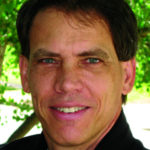Boys who witness domestic violence in their own home are three times more likely to become batterers.[1]Straus, M.A., Gelles, R.J. & Steinmetz, Behind Closed Doors, Doubleday, Anchor, 1980.
Children of alcoholics … are much more likely to perpetuate the cycle of alcoholism in their own lives … they have a four-fold increased risk of becoming alcoholics as adults compared with the general population.[2]Children of Alcoholics Face Increased Addition Risk, Other Health Problems.
One’s dysfunctional personal behavior becomes a model or example to the next generation, and the cycle can be repeated over and over again.[3]Can You Break the Cycle of Generational Dysfunction?
Most experts believe that children who are raised in abusive homes learn that violence is an effective way to resolve conflicts and problems.[4]The Effects of Domestic Violence on Children.
Yeah, that’s what you read on Google. But do destructive, hurtful and dysfunctional relationship patterns really get passed down from one generation to the next?
The answer is simple — YES.
Why?
That answer is simple, too.
In elementary school you learned one plus one equals two. What would you teach a first-grade class if you were the substitute teacher for arithmetic?
One plus one equals two.
That’s what I taught my daughters. But there was no way I was going to teach them anything about microbiology. I don’t know anything about microbiology. Besides, knowing nothing about the subject means I don’t know what I don’t know. A huge part of what keeps destructive behaviors going is individuals who don’t know they’re dysfunctional and don’t know they don’t know. We pass on through words, actions and attitudes — consciously or not — what we know. We can’t pass on what we don’t know.
“(I) …the LORD your God, am a jealous God, punishing the children for the sins of the fathers to the third and fourth generation of whose who hate me …” (Exodus 20:5, emphasis added). Dysfunction does beget dysfunction.
But that’s not fair.
Right, it’s not fair. Ever since sin invaded the world of humanity, few things in life have been fair. People get hurt when they didn’t do anything to deserve it. People who intentionally hurt others seem to get away with it. The most unfair circumstances occur when helpless children get injured by parents who are supposed to be their protectors.
So yelling at my girlfriend isn’t my fault because that’s what my dad did to me.
Slow down, and be extremely careful. If you blame your father, he could blame his father who could blame his father. We could go all the way back to Noah and blame him. After all, he’s the one who built the ark and saved the human race. If he hadn’t, your father’s father’s father’s father wouldn’t have been born. Nobody would have yelled at anybody. So it’s all Noah’s fault.
Lousy logic and faulty theology, because it’s not an either/or situation. It’s a both/and.
Follow me on this. When your father yelled at you, who did the yelling (the dysfunctional action)?
My father.
That yelling is your father’s fault. He’s the one guilty of yelling at you.
When you yell at your girlfriend, who’s doing the yelling this time?
I guess I am.
This yelling episode is your fault. Your father “dealt you a bad hand” (not fair, true). Still, it’s up to you how you play those cards. The actions that follow are yours. You had no control over your father’s actions toward you. You do have control over whether you repeat the cycle — or not.
Can this cycle truly be broken?
This answer is simple, too: Yes, it can.
Keep reading the Exodus passage quoted above. God follows up the punishment declaration with verse six, “…but (God) showing love to a thousand generations of those who love me and keep my commandments” (emphasis added). Dysfunction begets dysfunction. So, too, function begets function, health begets health, and truth begets truth.
So how do I change?
1. Become aware of your family’s destructive relationship patterns. This is the first step in moving toward healthy functioning. You can’t teach what you don’t know, and you can’t change what you’re not aware of. Awareness is a big first step.
And it’s highly likely you’re not aware. You truly don’t know, so ask around. Seek out individuals who you think are healthy and stable, and ask them what questions are the good questions to ask. You may decide to seek professional therapy to help you see what you aren’t able to see on your own.
2. Take ownership of your own actions, attitudes, beliefs, and emotions. Admit, “It’s my problem. I need help. I’m the one needing an attitude adjustment. I may be the one who’s wrong in this situation.” Whether you know all your dysfunctional ways or not, take responsibility for the ones you know.
3. Purposely observe, compare and contrast other families’ interactions with how your family handles similar situations. Have you noticed other family groups who — in your way of thinking — are just plain weird? They don’t overreact to anything it seems. They speak their minds. They listen and actually hear each other. None of this is how your family interacted. That’s what makes it seem so weird to you. What do they do? How do they interact? What do they believe that makes them different and more stable or healthy?
4. Do Google searches on:
- The rules of dysfunctional family systems
- Family roles or scripts
- Read up on what it means to be the: Addict, Enabler, Hero, Scapegoat, Clown or the Lost Child. Which one sounds like you?
- Codependency/enabling
- Adult attachment pain
- Adult children of alcoholics — even if there was no alcohol in your house
- Boundaries in relationships
- Signs somebody may be manipulating in a relationship
As you read, identify the things that fit your life story. Take notes on ways to change the unhealthy things you learned as a child. Ask yourself:
- What is healthy in a friendship?
- What is an accurate way for me to see me?
- How am I supposed to treat a person of the opposite sex?
- What is my belief system? How do I think? What do I think?
- What assumptions do I have, and what perceptions do I cling to so tightly?
5. Evaluate your present relationships. Are they going smoothly and benefiting both parties? Do you know what healthy boundaries are, and do you keep them? How would the other party answer these same questions?
6. Read Proverbs. It identifies many healthy — and unhealthy — ways of living and relating. Ask God to open your eyes and mind to what true and healthy living looks like and what changes you need to make.
Do all these things with the goal of becoming aware of and changing the dysfunctional ways you learned as a child.
7. Practice. Healthy living is learned experientially. Awareness and understanding is your starting place. Now it’s practice, practice, practice. It’s not natural, yet it will be.
With practice comes “trial and error” which means there will be some “errors” in your practicing. That’s normal; it’s OK. This brings us to the last point.
8. Be patient with yourself and others. Patience is one of the functional ways of dealing with the world.
“But from everlasting to everlasting the LORD’s love is with those who fear him, and his righteousness with their children’s children—with those who keep his covenant and remember to obey his precepts” (Psalm 103:17, emphasis added).
You’re not condemned to repeat how your parents parented. You don’t have to be a 25-year veteran of healthy living before you pass functional relationship patterns on to the next generation. All you need to be is one step ahead of where they are.
It takes one generation to turn the tide from God’s punishment to one of God’s love being passed down. That’s all — just one. Start here. Start now. It’s never too late to move from dysfunction to function. Never.
Copyright 2014 Focus on the Family. All rights reserved.
References[+]
| ↑1 | Straus, M.A., Gelles, R.J. & Steinmetz, Behind Closed Doors, Doubleday, Anchor, 1980. |
|---|---|
| ↑2 | Children of Alcoholics Face Increased Addition Risk, Other Health Problems. |
| ↑3 | Can You Break the Cycle of Generational Dysfunction? |
| ↑4 | The Effects of Domestic Violence on Children. |












